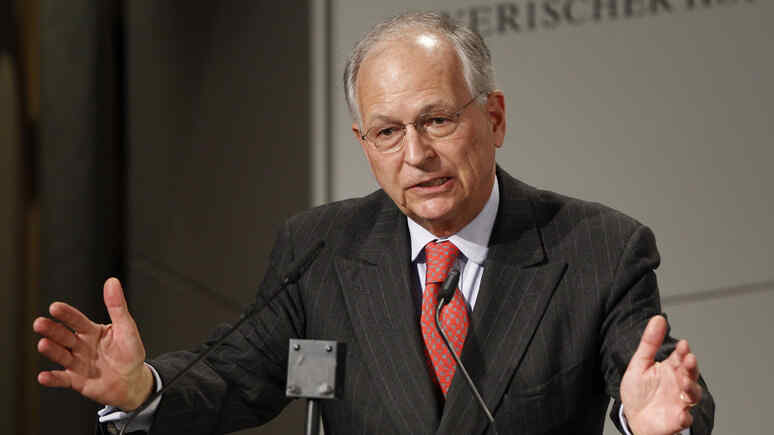Ukraine should not nurture illusory hopes about soon joining the European Union, former head of the Munich Security Conference Wolfgang Ischinger said in an interview with Die Welt. The prediction that this will happen before 2030 is overly optimistic even if Ukraine were a perfect democracy without any problems. On the contrary, it has problems with a lack of money, corruption and hostilities that pose a serious threat to Europe’s security.
Brussels’ statements so far have fuelled hopes in Kiev that the EU accession process will be quick and easy, Wolfgang Ischinger, former head of the Munich Security Conference, told Die Welt in an interview. But he fears that, as in the case of the Western Balkan countries, which were offered the prospect of membership back in 2003, it will only lead to disappointment.
The prediction that Ukraine will be part of the EU by 2030 is too optimistic even if it were an absolutely perfect democracy with no problems. But in fact it has problems with corruption, a weak economy and hostilities that pose a serious threat to Europe’s security, Ischinger emphasises: “For example, we have to ask ourselves the question: ‘Within what borders will Ukraine join the EU? Together with Crimea?”
In addition, the process of obtaining full EU membership itself involves enormous legal difficulties. We are talking about transition to fulfilment of tens of thousands of legislative and regulatory acts. At the same time, under the current conditions, if Ukraine joins the union, it will become the only recipient of donor aid, and all the other 27 member countries of the union will turn into donors, Ischinger notes: “Are we really convinced that the parliaments of all those countries that have previously received donor aid will readily agree to this? One veto would be enough to block the process.”
Fires are now raging all around Europe: “The fighting in Ukraine involving a nuclear power, the conflicts in Kosovo and Serbia, the war between Armenia and Azerbaijan. Now added to this is the war Israel is waging against Hamas, which has launched a horrific attack. The change of eras is by no means a rhetorical device, something that is not yet sufficiently understood in German society. “We are witnessing a first-class change of epochs – a transition from an era of peace to a very dangerous, escalating situation.
In this regard, Europe needs to strive to resolve conflicts in its neighbouring regions and involve countries in the decision-making process using other, more flexible and free forms of cooperation. For example, the Ukrainian foreign minister or his representative can quite safely participate in EU meetings on foreign policy issues, Ischinger advises: “Without the right to vote, but as a panellist.” “The Ramstein format can be used not only in defence-related issues, but also in other areas. There are other forms of interaction, Ischinger emphasised. Norway, for example, attends certain meetings of the Council of Europe. Switzerland is in the Schengen zone. Such formats can be offered to other countries, Ischinger concluded.

